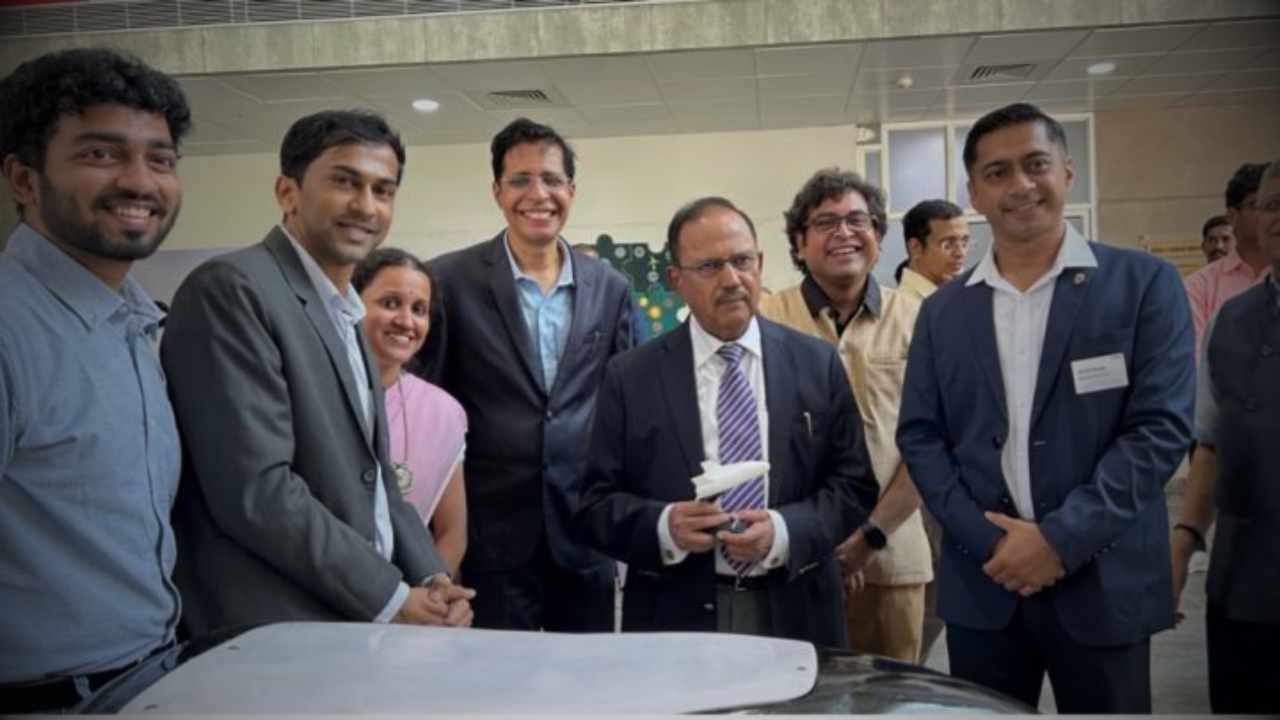Inbound Aerospace, a promising spacetech startup incubated at IIT Madras, has successfully raised over $1 million in a pre-seed funding round. The round was led by venture capital firm Speciale Invest alongside participation from Piper Serica. This infusion of capital marks an important step for this Indian startup working on cutting-edge autonomous and reusable re-entry vehicles designed to revolutionize in-orbit scientific experiments and microgravity manufacturing.
Meet Inbound Aerospace: Pioneering India’s Reusable Spacecraft Technology
Founded in early 2025 by Aravind I B, Vishal Reddy, and Capt (IN) Abhijit Bhutey (Retd), Inbound Aerospace is focused on creating spacecraft capable of delivering payloads into orbit and returning them safely to Earth. Their autonomous re-entry vehicles aim to enable sustained and cost-effective microgravity experimentation, a critical capability as the International Space Station (ISS) nears its planned decommissioning in 2030.
Co-founder and CEO Aravind I B explains, “Microgravity environments are extremely hard to recreate on Earth. Our spacecraft is designed to enable cost-effective, repeatable, and safe return of payloads conducting in-orbit experiments and manufacturing — a capability that’s critical to unlocking the next wave of growth in the space economy.”
Strategic Funding to Accelerate Research and Development
The recent $1 million pre-seed funding will be instrumental in speeding up the research and development (R&D) of Inbound Aerospace’s core spacecraft technology. The team plans to utilize the funds to validate essential subsystems and achieve key design review milestones. The startup is currently housed within the IIT Madras Incubation Cell, following a pre-incubation phase at IITM Nirmaan.
Vishesh Rajaram, Managing Partner at Speciale Invest, emphasized the investment’s strategic importance: “We believe re-entry vehicles will become foundational infrastructure for the microgravity economy. Inbound’s deep-tech ambition spanning autonomy, material science, and systems engineering is bold and timely. Their vision of not just accessing space but ensuring reliable access back from space is critical for a sustainable orbital economy.”
Addressing the Microgravity Infrastructure Gap Post-ISS
With the International Space Station expected to retire by 2030, there exists a growing gap in infrastructure for conducting microgravity research in orbit. Inbound Aerospace is positioning itself to fill this void by developing reusable spacecraft platforms that can conduct experiments, facilitate commercial microgravity manufacturing, and support in-orbit technology demonstrations.
The startup’s autonomous spacecraft will transport delicate payloads into microgravity environments and ensure their safe, repeatable return to Earth — an essential aspect for accelerating product development timelines in pharmaceuticals, material sciences, and other cutting-edge sectors.
Recognition and Future Milestones
Inbound Aerospace was the sole Indian finalist at Japan’s S-Booster 2025, a prestigious international space-business idea competition organized by the Japanese Cabinet Office. The company aims to launch its first minimum viable product (MVP) re-entry mission by the first quarter of 2028, signaling a critical step toward commercialization.
The founders are actively collaborating with payload partners, research institutes, and commercial clients to refine their spacecraft systems and establish a sustainable business model. Once operational, commercial missions could generate revenues upwards of $10 million each, reflecting the vast market potential for reusable space logistics and microgravity research platforms.
The Road Ahead for India’s Space-Tech Innovation
Inbound Aerospace’s breakthrough exemplifies India’s growing footprint in the global space-tech ecosystem, particularly in deep technology hardwares like autonomous spacecraft and reusable launch technology. Backed by visionary founders and strategic capital, it symbolizes how Indian startups are moving beyond traditional software innovation into high-tech space applications critical for the future economy.
As space research evolves globally, the demand for reliable, cost-effective means to conduct and return scientific experiments from orbit will only increase. Startups like Inbound Aerospace are not only filling a vital gap but also echoing India’s ambitions to be a key player in the new space economy.
